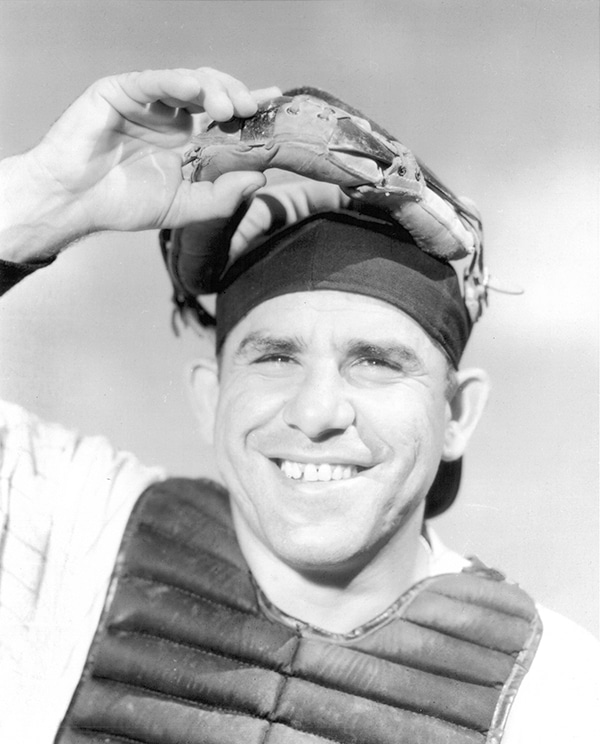
February 17, 1999 – Born in the Italian “Hill” section of St. Louis to immigrant parents, Lawrence Peter “Yogi” Berra was an unlikely candidate for baseball immortality. At 5-foot-7, 185 pounds, he was both short and ungainly. Even Cardinals general manager Branch Rickey, one of the most astute judges of baseball talent, thought Berra was too slow and clumsy to be a big leaguer. But Yogi confounded the skeptics by having one of the greatest careers in baseball history.
Following service in World War II, in which he was a gunner on a rocket ship during the D-Day invasion of Normandy, he made his major league debut in 1946. In his 18 years with the Yankees, he won three MVP Awards and a record ten World Series rings, holds numerous Series batting records, was an All-Star for 15 consecutive years, had his uniform number 8 retired by the Yankees, and was honored with a plaque in Yankee Stadium’s Monument Park. He also led both the Yankees and Mets to the World Series as a manager and was inducted into the Hall of Fame in 1972.
Berra transcended baseball to become a cultural icon. For a half-century, he was a highly visible part of American popular culture, as a television spokesperson for various products, as the namesake of the cartoon character Yogi Bear, and as one of the most frequently quoted American personalities. Thanks to his visibility, his unintentionally witty sayings, known as “Yogi-isms,” and his unassuming and endearing manner, he became one of America’s most beloved figures. In his eulogy of Berra, former Yankees manager Joe Torre said of his friend, “He was so good and so honest and so real and so human.” Those in baseball knew him as a man with an exceptionally keen baseball mind. Hall of Famer Craig Biggio, who played for the Houston Astros when Berra was a coach, said, “He’s the smartest baseball man I’ve ever been around.”
The Yogi Berra Museum and Learning Center, located on the campus of Montclair State University in New Jersey, both perpetuates Berra’s legacy and provides sports-based educational and public programs for K-12 schoolchildren.
